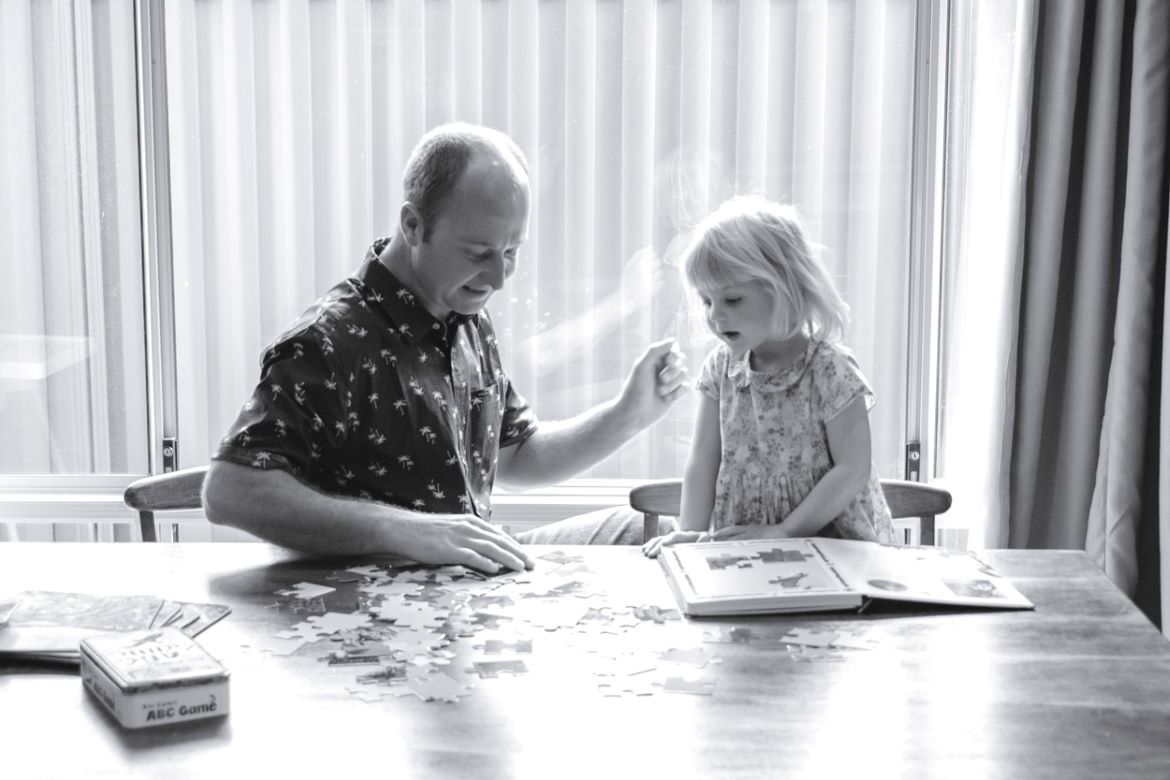By Tracy Cassels
Homeschooling is something that gets mixed reviews when I bring up that we plan on it for our daughter. Whereas most people we know are actually quite supportive, there are those that seem to truly believe that parents are not competent to teach their children. And so I thought I’d briefly talk about the reasons why we have decided to go this route and to clear up some of the misconceptions that may be out there about those of us who choose to teach our kids at home.
First, let’s clear up the misconceptions…
1. We don’t have a problem with teachers
I address this first because this seems to be a go-to for some people. Some believe the reason people homeschool is that we don’t trust or like teachers, when often nothing could be further from the truth (though we freely admit there are good and bad teachers out there, like every other profession). I have the utmost respect for good teachers. My brother just finished his teaching degree last year. My mother-in-law is a retired teacher. My husband’s father’s side of the family are almost all teachers. Of course, hearing this makes people even more curious about why we want to homeschool, but hopefully it’s clear we don’t hate teachers. That said, do I think one needs a teaching degree in order to homeschool well? No.
Some people will not be great at conveying information to their children, some will be able to do so, though often those who aren’t good at it don’t really want to undertake it to begin with. This is especially true when thinking of the one-on-one teaching that homeschooling provides. As a parent, you know your child well and know how to work with them. Some teachers may be offended that we think we can do what they do without their education. I disagree.
Where teachers are far superior to most parents, and where their education becomes paramount, is when it comes to teaching lots of children of differing abilities. I think of that scenario and will gladly hand over the reins to someone far more qualified than I.
2. We’re not homeschooling so she doesn’t learn about X,Y, or Z
Outside of hating teachers, people assume you homeschool because you’re religious and don’t want your child learning about evolution or sex ed or anything like that. Personally, I plan to teach my daughter about all theories and views about the world (including religious ones, even though we are agnostic). As to sex ed, well, are the schools really getting it right? Do I really want my child learning it there? No, I will be making sure my child has ALL the information. Does this mean there aren’t parents who are doing what some fear? Of course not. But I would go so far as to say the majority of homeschoolers do not fall into this camp of trying to hide other points of view from our children (even the religious ones).
3. Group work and peer play time need not happen in school
I often get asked how my child will see other kids or learn how to work in a group if she’s homeschooled. I answer both of these with: activities and plans outside school learning. Right now, we attend a homeschool meet-up weekly where the kids all socialise together – different ages, abilities, etc. all playing at least once a week (and on average they socialise far better than the children we see at the public school). However, the older kids all do activities together too outside of that meet up, so they’re seeing their friends on a regular basis. Sometimes, group work is done during the meet-ups as kids will all work on something together (though sometimes they just play). We also will enroll our daughter in other group activities (drama, sports, etc.) that promote teamwork. In fact, I find most people learn better teamwork skills from things like a sports team than activities in the classroom where often one person takes the lead and does the work while the others mess around.
Now, the reasons we plan to homeschool?
1. We struggle with how schools are run today (where we are)
Same-aged classrooms, teaching to the test, focus on the average student without much consideration of children’s individual abilities or strengths. These are all reasons we don’t like the current school model in terms of teaching. Then you add in that while there are wonderful teachers at every school, there are also shit teachers.
I’ve heard my own teacher friends complain about the bad ones and frankly, you don’t have much control over which teacher your child will end up with. And we’re not prepared to accept one year of bad teaching, much less the possibility of multiple ones.
2. We don’t like the type of socialisation that happens in schools here
Bullying continues to be a huge problem in schools and neither schools nor parents seem ready to respond. Gender roles run rampant with girls and boys being teased for not conforming to the stereotypical way of behaving. Sadly, this starts very young. Even in school plays we noticed early (my stepson attends public school) that the roles were not open to everyone. Boys played boy roles, girls played girl roles, even if the girls were itching to play a boy (who doesn’t want to be Santa when you’re young enough not to care?). And then of course there’s the issue of how children interact with different-aged playmates. The segregation of children by age in a classroom means there’s very little in the way of interactions with older or younger children. Kids don’t get to learn to be mentors, they don’t learn how to play appropriately with younger children, they don’t get to learn from looking to older kids on a regular basis (which is one of the best ways they learn). In short, we short-change our children socially in a school setting.











